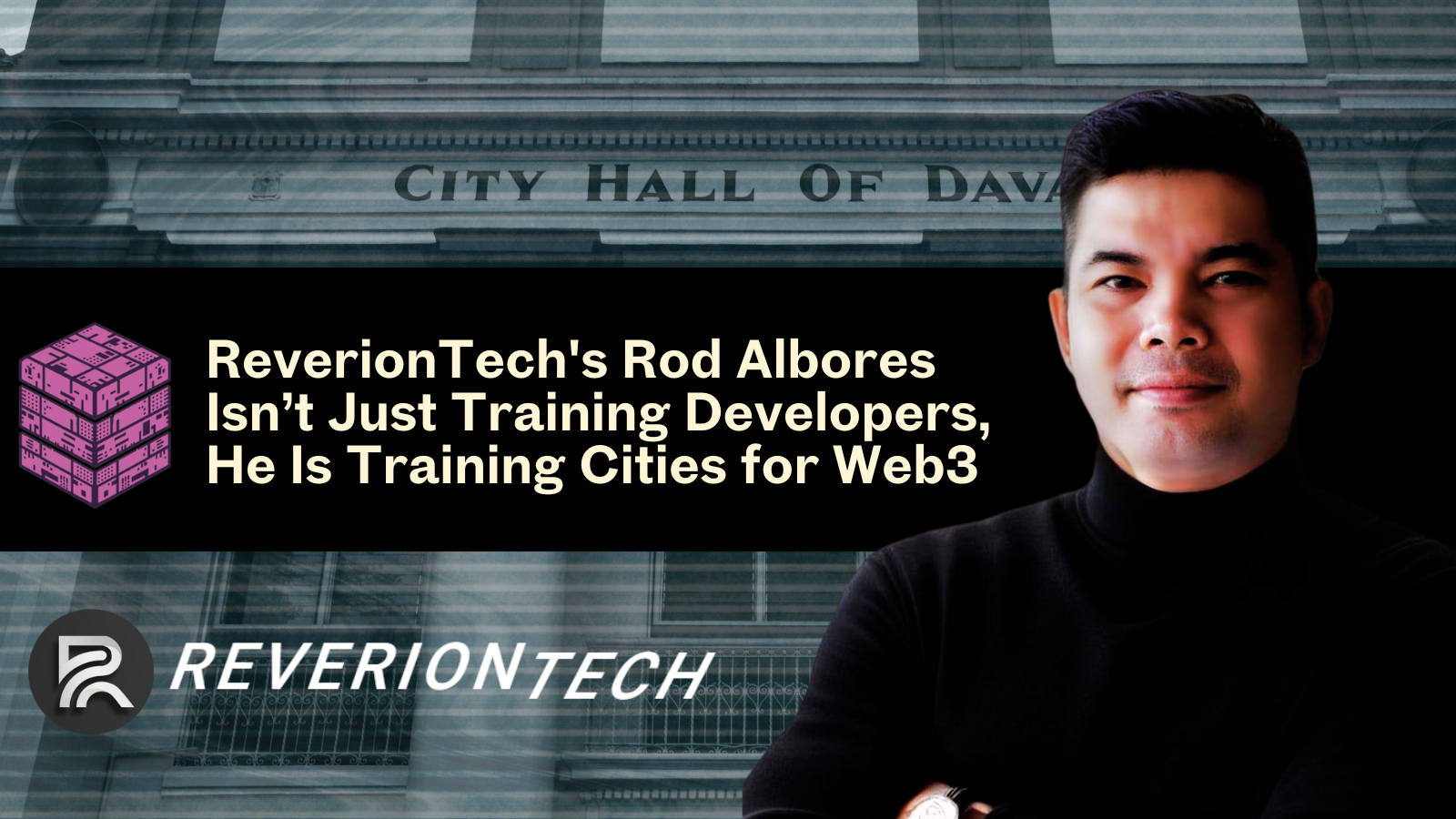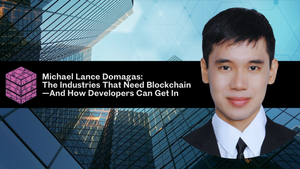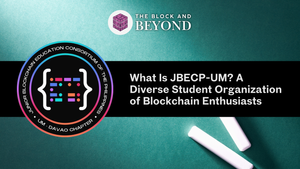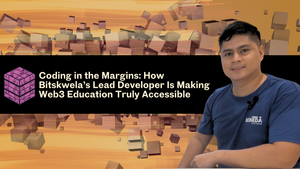What if the key to government modernization isn't just policy or funding, but people who understand blockchain? In Davao City, developer Rod Albores is proving that teaching the right minds can lead to transformative change.
Davao City isn’t new to cyberattacks. For years, the local government has faced persistent threats against its websites and digital systems. The problem wasn't just about having weak firewalls. It was about the lack of a secure, scalable infrastructure and the technical knowledge to build one.
While the national government has long discussed digital transformation, Davao took an unconventional route. It didn’t wait for top-down intervention. It began with a local developer.
Rod Albores, founder of ReverionTech, is no stranger to community building. His company had already been training Web3 developers across Southern Philippines. But when he learned about the IT struggles in Davao LGU, especially around cybersecurity and system decentralization, he saw an opportunity to do more.
“Our goal is really to train developers and then to spark up the interest.”
On a recent episode of Coach Miranda Miner’s podcast, the full story behind Davao’s blockchain leap came to light.
- Rod Albores, the developer connecting Web3 to real city needs, talked about upskilling LGUs through ReverionTech.
- Nelson Lumbres, the mind behind ICP Philippines, shared how his team is bringing advanced blockchain tools to the table.
- Jun Barber, the IT lead from Davao LGU, broke down how the city is weaving blockchain into public systems from the ground up.
Bridging Government and Blockchain
Albores wasn’t just there to run workshops. He helped the Davao City Information and Technology Center connect their problems with real blockchain solutions. The team eventually partnered with ICP Philippines to offer in-depth training on Internet Computer Protocol ICP.
“Based on our research and studies, we know that ICP has the capability to address their pain points.”
ICP was selected not only for its security features but also because it enables fully on-chain applications, from frontend to backend. This makes it especially useful for public sector use cases like citizen IDs, departmental integration, and audit trails.
What made Albores stand out wasn’t just his tech skills. It was his ability to talk to both sides. He could connect with developers in code and with civil servants in plain terms. It was this skill that helped convince the LGU to take blockchain seriously, not as a futuristic experiment but as a tool for solving real issues.
Making LGUs Blockchain Ready
After a preliminary training in February, formal sessions began with full hands-on modules. The idea was not to spoon-feed government IT teams, but to enable them to build and troubleshoot on their own. Albores emphasized understanding local tech stacks and working within the LGU’s existing workflows.
“We are doing it in a way so they are ready to do it by themselves.”
Instead of outsourcing blockchain development, Albores wanted the LGU to own the knowledge. This means local government staff can deploy smart contracts, manage systems, and troubleshoot without relying on external consultants. That independence is crucial for sustainability.
The Unified Citizen ID system is one example. Even without blockchain, the city is ready to launch it. But embedding blockchain from the start allows for stronger auditability and identity management. It’s that forward-thinking mindset that Albores is trying to embed in every city he trains.
Decentralization with Local Roots
One major barrier to adopting blockchain in government is procurement. Most government systems are built by major tech vendors with national contracts. Blockchain providers often don’t qualify, especially if they aren’t physically present in the city.
But ReverionTech is based in Davao. That alone makes a big difference. It means continued support, familiarity with local governance structures, and the ability to meet compliance requirements.
“We have the technology, and the resources are available… We just have to have the grit and determination to push it forward.”
By training developers at the LGU level, Albores is bypassing traditional bottlenecks. The change may be slower, but it is more deeply rooted. The knowledge stays in the city. The momentum builds from within.
Training Cities, Not Just Coders
Albores doesn’t just see Davao as a one-off. The model could be replicated in other parts of the country, particularly in the south. His group has also been working with students, building apps, and even gamifying learning through DAO-based policy simulations.
In a world where many developers are chasing the next NFT trend or crypto pump, Rod Albores is quietly building something more lasting. He is building trust. He is building capability. And most importantly, he is helping governments build themselves.
“If you need help in tech and you want to start your career in Web3, let us know.”
ReverionTech isn’t just a company. It is becoming a force for digital citizenship, one city at a time.











